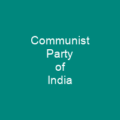What Exactly Is Political Corruption?
Political corruption is a complex issue that involves the misuse of power for private gain, often through bribery, lobbying, and other illicit means. It’s not just about taking bribes; it encompasses a wide range of behaviors from accepting gifts to influencing decisions in exchange for personal benefits.
The Shades of Corruption: White, Grey, Black, and Shadow
Imagine corruption as a spectrum with different shades. White corruption, often viewed with tolerance, can be seen as a form of family ties or patron-client systems. Grey corruption is more reprehensible but still lacks the sense of wrongdoing. Black corruption violates societal norms and laws, while shadow politics involves informal processes that are deliberately hidden.
The Impact on Society: A Multifaceted Problem
Political corruption undermines democracy by distorting representation in policymaking and reducing accountability. In the public sector, it leads to inefficient service provision and economic distortion. The private sector faces increased costs due to illicit payments and risk of breaches. Corruption also diverts public investment into capital projects where bribes are more common.
Regional Variations: Africa vs. Asia
In Africa, corruption often facilitates the extraction of financial capital, moving it overseas. In contrast, Asian administrations like Suharto’s New Order took a cut on business transactions or provided conditions for development through infrastructure investment and law enforcement.
Healthcare: A Vital Arena for Corruption
The healthcare system is particularly vulnerable to corruption. Greed mismanages funds, compromising the efficiency and quality of care. This not only affects the poor but also undermines the value of hard work and merit in society. Corruption in education and public safety further exacerbates these issues.
Corruption in Sports: A Hidden Menace
Corruption extends to sports, where it can manifest through bribery, trading in influence, or patronage. These practices not only undermine the integrity of competitions but also create a culture of favoritism and nepotism.
The environment for corruption thrives when there are information deficits, lack of freedom of speech, weak accounting practices, and tax havens that enable large-scale political corruption. Additionally, the presence of natural resource wealth can exacerbate the issue, known as the resource curse.
A free press is essential for protecting liberty and property. Studies show a significant relationship between press freedom and lower corruption levels. Increased newspaper readership leads to increased political accountability. However, media responses to whistleblower incidents are limited by political correctness and speech codes in Western nations.
Public spending can lead to cronyism and embezzlement due to complicated regulations. Privatization can exacerbate corruption but also has its benefits, as seen in the Nordic nations where large public sectors do not necessarily lead to corruption.
Measuring corruption accurately is challenging due to its illicit nature. Perception surveys like Transparency International’s CPI provide estimates but have limitations. The CPI and other metrics offer insights into corruption levels, while the World Bank collects data through survey responses from firms worldwide.
Whistleblowers play a crucial role in exposing corruption. Laws exist to protect them, but third-party groups can offer limited protection. Public sector whistleblowing is more likely to result in criminal charges, while private sector whistleblowing may lead to termination and civil charges.
Questions about the legitimacy, moral responsibility, and institutional appraisal of whistleblowing are part of political ethics. Some view it as a form of civil disobedience to protect the public from government wrongdoing, while others see it as unethical for breaching confidentiality.
Corruption indices have refined over time, with validation checks against objective indicators improving their accuracy. Transparency International has pioneered the field, publishing metrics like the CPI and Global Corruption Barometer. These measures help in understanding the scale of corruption across different regions and sectors.

Understanding and addressing political corruption is crucial for building a fairer, more transparent society. By recognizing the various forms it takes and working towards stronger accountability measures, we can make significant strides in combating this pervasive issue.
You want to know more about Political corruption?
This page is based on the article Political corruption published in Wikipedia (retrieved on February 13, 2025) and was automatically summarized using artificial intelligence.





